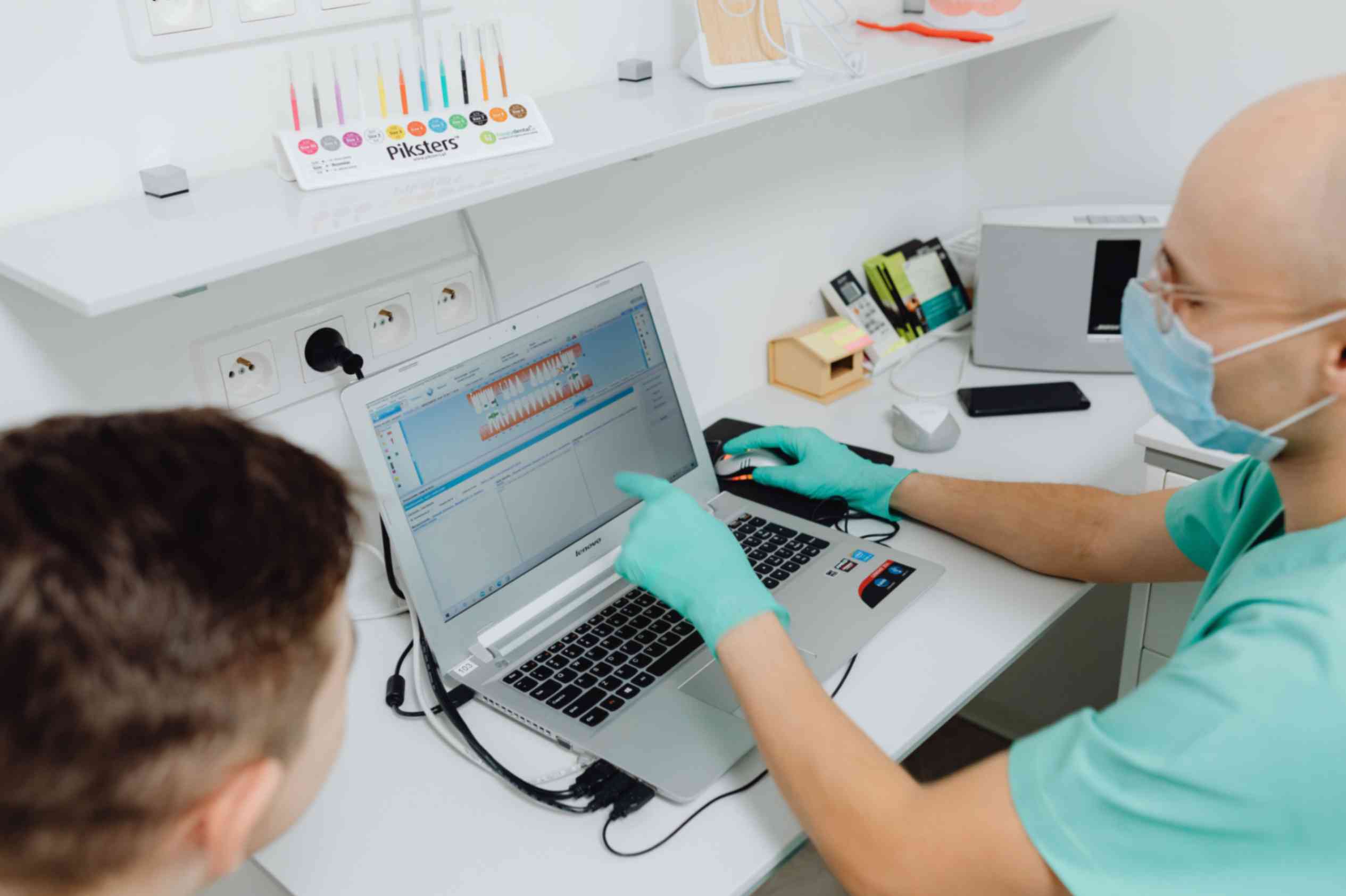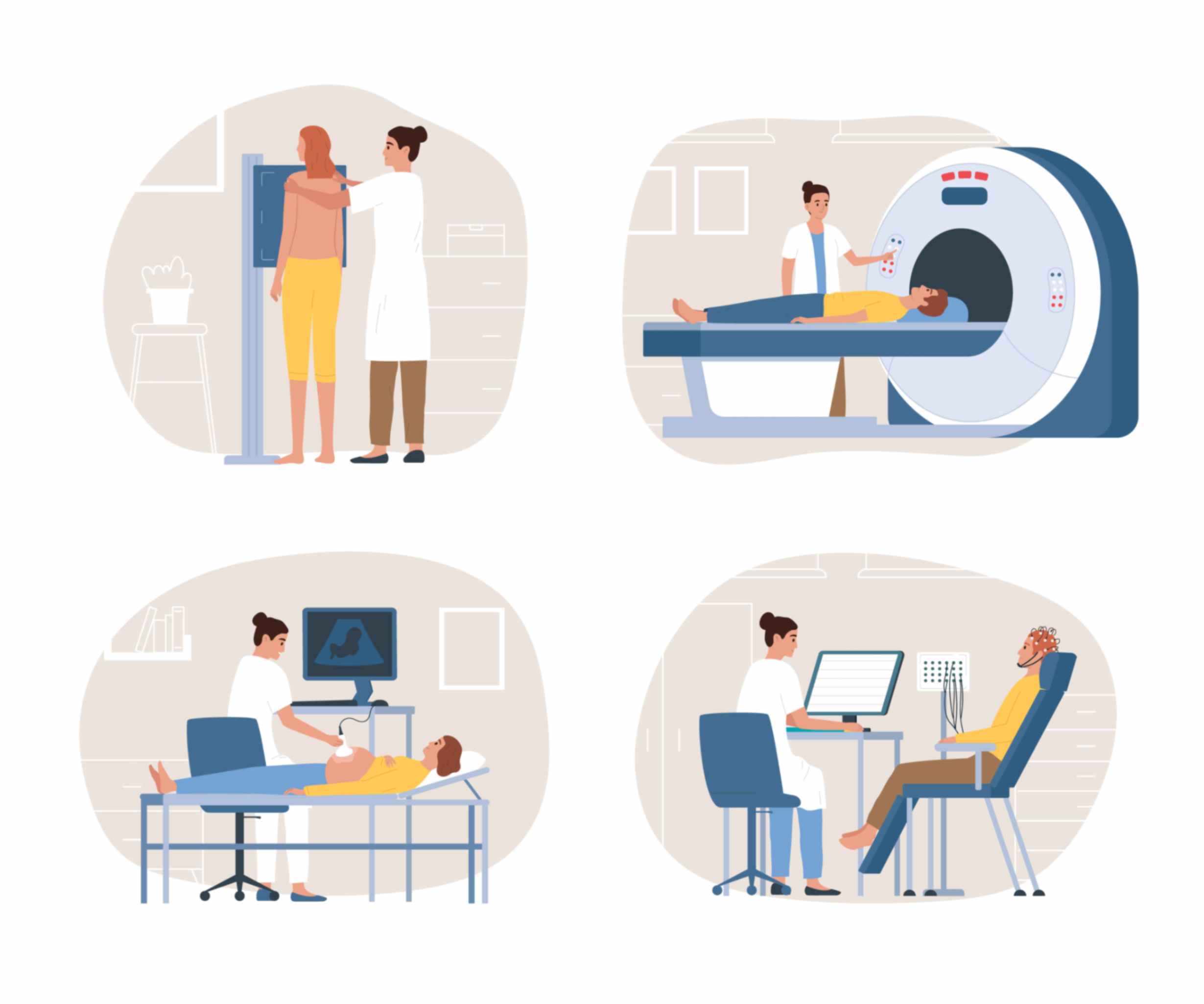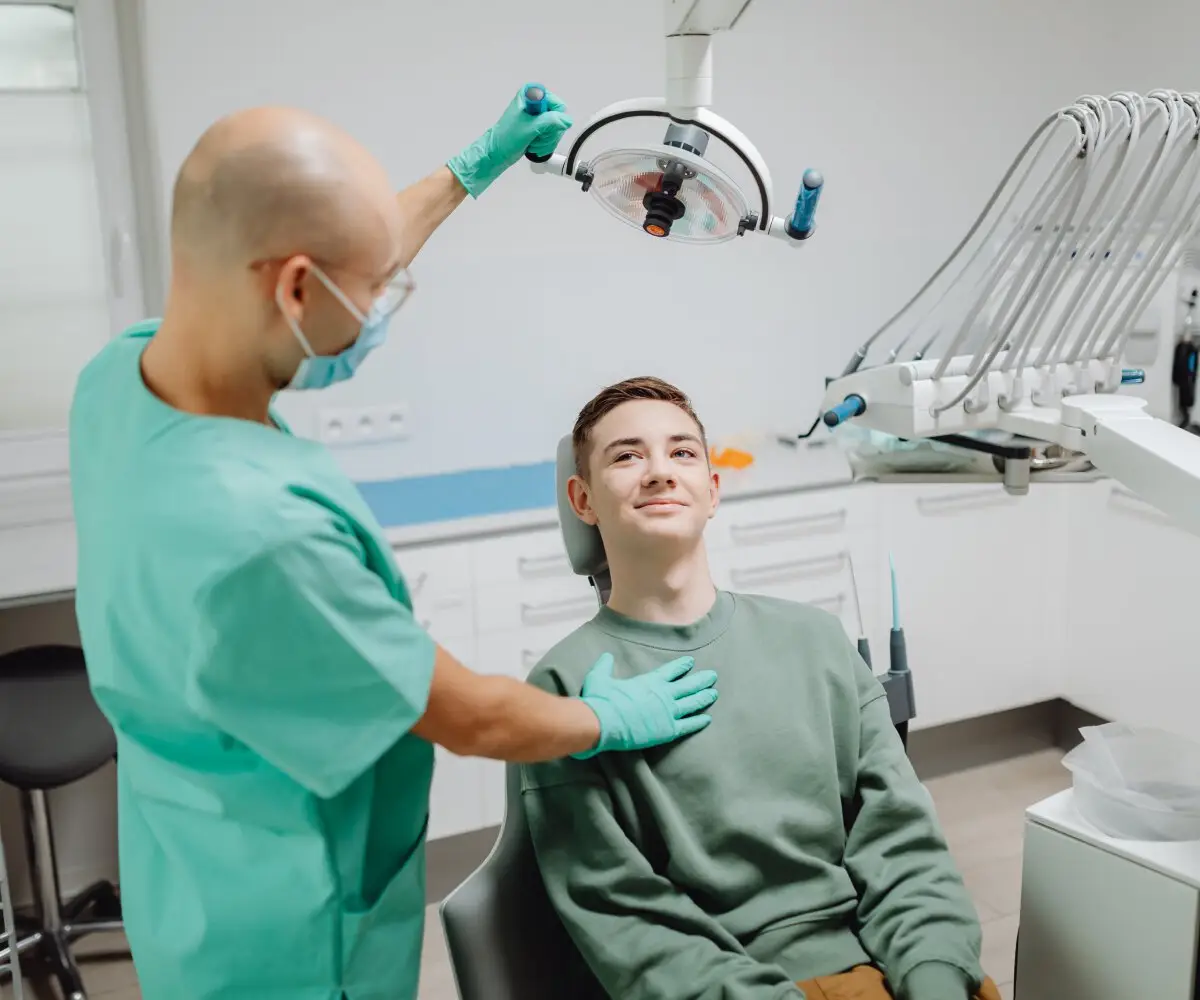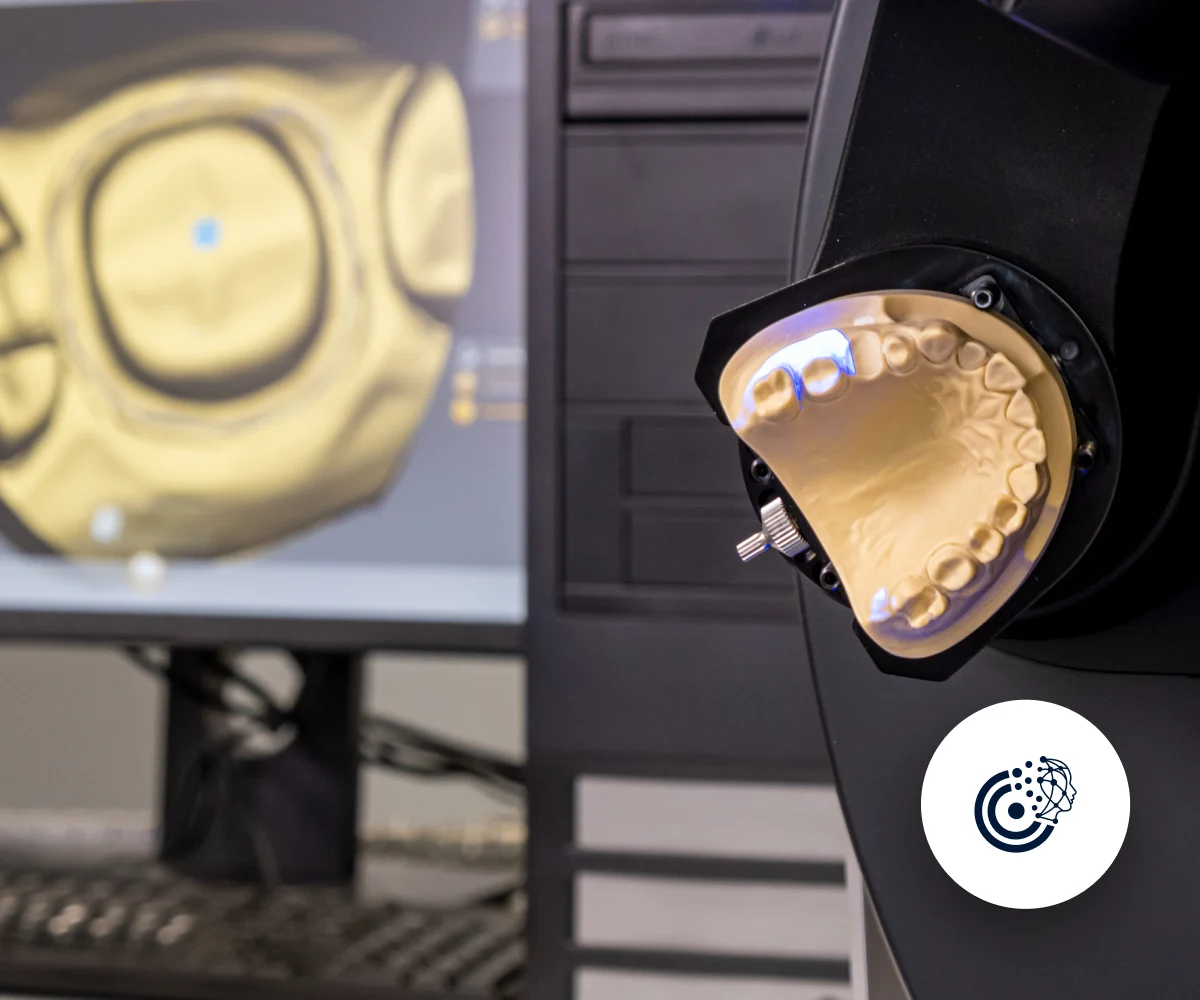Artificial Intelligence in Dentistry and Patient Privacy
1- Introduction
Artificial Intelligence (AI) is a rapidly growing technology in the medical field and holds significant potential in dentistry as well. The use of AI in dentistry applications can enhance various areas such as diagnostic accuracy, treatment planning, and patient care. However, the rapid proliferation of this technology and the processing of patient data raise important questions regarding patient privacy and data security.
2- Artificial Intelligence and Dentistry
Artificial Intelligence, aided by advancements in areas like big data analysis, image processing, and deep learning, can assist dentists significantly. Particularly when working with radiographic (X-ray) images, AI proves to be highly effective in detecting dental diseases and making diagnoses. Moreover, it is used in treatment planning and can aid in developing personalized approaches tailored to individual patients.
3- Artificial Intelligence and Data Analytics
AI is known for its ability to analyze vast amounts of patient data. This capability can help dentists better understand their patients' treatment histories and plan future care more effectively. However, a crucial question arises at this point: How will patient privacy be safeguarded? Patients' dental health data are highly sensitive, and any malicious use of this data can lead to serious consequences.
4- Patient Data Privacy
A dental practice should be a place where patients feel that their personal and medical information is secure. With the use of artificial intelligence, strict adherence to data security standards is imperative. This includes safeguarding patient data against unauthorized access. Dentists and technology providers must acknowledge their responsibilities in ensuring the confidentiality of patient information.
5- Ethical and Legal Responsibilities
Dentists must ensure that patients' data is ethically and legally protected. This includes obtaining clear consent from patients for data usage. Additionally, dentists should only use patients' data for treatment purposes and should not use it for commercial or other purposes. Legal responsibilities should also be taken into account.
6- Patient Education and Informed Consent
Patient education is a crucial element in dentistry and can be another area where Artificial Intelligence comes into play. AI-based applications can assist in better informing patients about their dental health. For example, when a patient needs to improve their brushing habits, an AI-based system can provide personalized recommendations.
7- Digital Dentistry and Telehealth
Artificial Intelligence can further enhance digital dentistry and telehealth applications. Storing patient data electronically can facilitate dentists in remotely monitoring their patients. However, data security is of paramount importance in this context, and it must always be ensured that patient data is secure.
8- Education and Regulations
As the use of Artificial Intelligence in dentistry is rapidly increasing, the education of dentists and healthcare personnel becomes crucial. Proper training can help dentists effectively utilize this new technology. Moreover, standards and guidelines regulating the use of this technology should be established.
9- Digital Transformation and Artificial Intelligence
Artificial Intelligence isn't just taking dentistry one step further; it's triggering a full-fledged digital transformation in the field of dental health. Traditionally, patients' dental health records were maintained on paper, and these records could get lost or be illegible over time. Artificial Intelligence is digitally solving these paper-based systems and assisting in securely storing patient data.
Furthermore, AI helps dentists communicate more effectively with their patients. Through mobile applications and web-based platforms, patients can schedule appointments, review treatment plans, and communicate their questions to dentists. This provides patients with access to more information and faster service.
10- Artificial Intelligence and Diagnosis
Artificial Intelligence is bringing groundbreaking advancements in dental diagnosis and treatment. It holds tremendous potential, especially in the analysis of radiography images. AI-based systems offer dentists the ability to analyze radiography images faster and more accurately. This can lead to early diagnoses and improved treatment processes.
Another significant advantage lies in the data mining and analytics capabilities of Artificial Intelligence. Big data analysis can help us better understand patients' health trends and risk factors. For instance, determining that patients living in a specific region have a higher sensitivity to dental health issues can aid in the development of public health policies.
11- Data Privacy and Security
However, one of the most significant concerns regarding the use of Artificial Intelligence in dentistry is the privacy and security of patient data. Patients have sensitive data, such as intraoral images and personal health information, which must be protected with the utmost care. AI applications need to adhere to the highest data security standards and safeguard patient data against unauthorized access.
In conclusion, Artificial Intelligence holds great potential in dentistry, but to harness this potential effectively, it requires proper education, regulation, and ethical guidelines. AI technology can lead to better patient care and more efficient dental practices. However, the responsibilities that come with the use of this technology should not be overlooked. Ensuring the safety of patient data is key to the success of this marriage between dentistry and AI. In the future, this technology will continue to evolve and improve for healthier smiles and more secure data.
12- Conclusion and the Future
The use of Artificial Intelligence in dentistry can lead to better patient care and more efficient dental practices. However, patient privacy and data security should always be a top priority. With the widespread adoption of AI, dentists must consider ethical and legal responsibilities to maximize the advantages that technology offers and ensure the safety of patients.
Dental practice is transforming with advancing technology, and this transformation can provide significant advantages for patient health. However, at every step of this transformation, patient-centered care and data privacy should not be forgotten. For the successful integration of AI and dentistry, education, regulation, and ethical responsibilities must be taken into account.
In conclusion, technological advancements in dentistry offer exciting opportunities, but these opportunities must be managed carefully for the sake of health and privacy. Artificial Intelligence has great potential for both dentists and patients, but it requires meticulous attention to make the most of this potential. In the coming years, dental practice will become smarter and more patient-focused, heralding a healthier future for all.






 Contact Us
Contact Us

